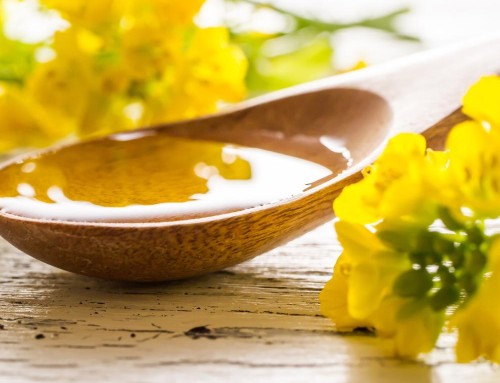Almost every day we get an inquiry about the palm oil (elaeis guineensis) that we add in our soaps. There is considerable concern with rainforest deforestation that is occurring due to the present palm oil plantations and future palm expansion.
At Mountain Sky, we are also concerned with this environmental quandary. We use three main oils in our soap; equal parts of coconut and palm, and a smaller percentage of canola oil are added to each of our soaps.
We could use animal fat from Alberta to replace palm and coconut oil. Traditionally, all soaps were comprised from animal products before the widespread availability of exotic nut oils. Animal fat from Alberta would eliminate ocean travel and rain forest destruction, and have less of a carbon footprint; however, many of our customers have told us that they wouldn’t purchase our soaps if they contained animal products.
To meet consumer expectations, we use only vegetable oils. Each oil is derived from either a plantation (tree agriculture) or crop farming. Both systems require cutting down of previous trees, or plowing and turning up of previous growth. Extracting oils from plants is a human behaviour which requires machinery, fuel, fertilizers and pesticides. Even organic farming or agro-forestry will require machinery, fuel, fertilizers and pesticides in different forms. There is nothing earth natural about any sort of agriculture; growing food requires changes to the soil and humans have been intentionally growing their own food for over 10,000 years. In fact, greenhouse gases first started to increase in the atmosphere when humans started growing their own food instead of relying on hunting and gathering. Turning over soil releases bound up carbon.
There is no easy simple solution. We try our best to balance the values of our company, customer demand and sustainability.
Our palm oil comes certified from the Roundtable of Sustainable Palm oil.
You can read below about RSPO. To read more about the palm oil discussion and debate, the Guardian has set-up an excellent resource page.
1. What is Certified Sustainable Palm Oil (CSPO)?
a. Sustainable food production implies the ability to produce food while maintaining environmental, social and financial considerations. For food to be considered certified sustainable it must meet criteria set out by the certifying body, these criteria are determined, practiced, inspected, evaluated and updated.
b. Palm Oil cultivation, transportation and processing are evaluated by these 3rd party bodies. Growers and processors must follow strict guidelines to maintain their certifications and ability to trade in CSPO.
c. Sustainable palm oil is produced according to a set of environmental and social criteria defined by the Roundtable on Sustainable Palm Oil (RSPO). These 8 principles and 39 practical criteria have been in place since 2008 and define the sustainable production of palm oil. They ensure that fundamental rights of previous land owners, local communities, plantation workers, small farmers and their families are respected and fully taken into account, that no new primary forests or high conservation value areas have been cleared for palm oil production since November 2005, and that mills and plantation owners minimize their environmental footprint. When properly applied, these criteria help to minimize the negative consequences associated with conventional palm oil cultivation.
For more information go to http://www.rspo.org/
Read Mountain Sky’s FAQ page to learn more about our products.







